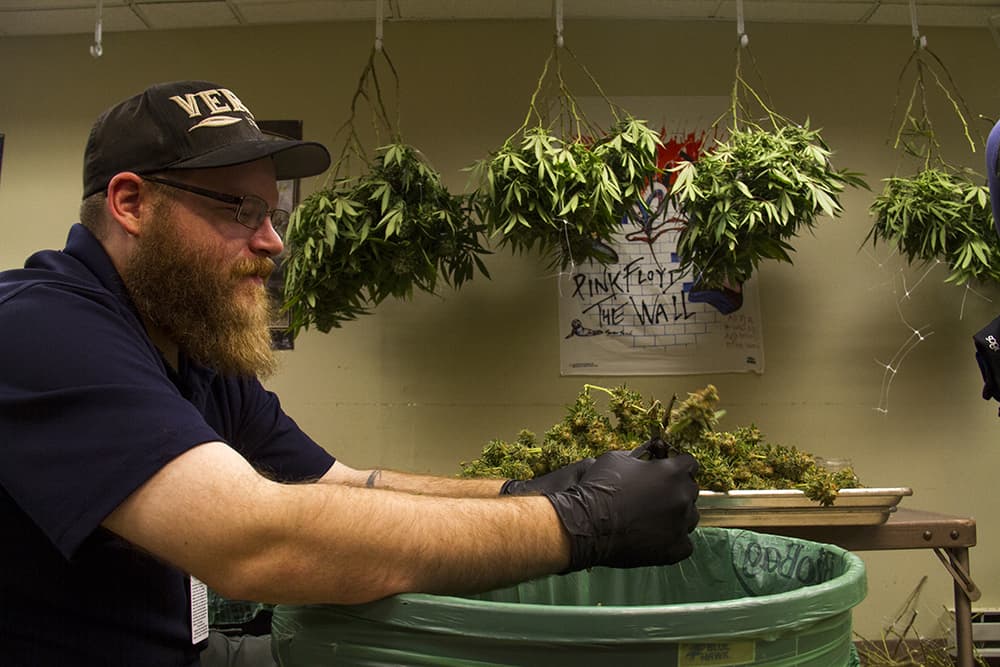
Denverite reader Nancy replied to one of our newsletters with a few questions -- she was curious about marijuana. Not how to consume, how much to consume, or anything of that nature. Here were her questions: What happens to the marijuana refuse from grow businesses? Where does it go? Does it have to be handled differently from regular trash that goes to a landfill?
The Colorado Department of Public Health and Environment had most of the answers in a single document.
What happens to the marijuana refuse from grow businesses?
Marijuana refuse can be regulated as hazardous wastes, according to Colorado’s Department of Public Health & Environment. This means that marijuana plant material, marijuana-infused products, pesticides and other waste that involves refer are handled with extreme caution to avoid endangering public health and the environment.
The refuse must be deemed “unusable and unrecognizable.” There is a process for that, though. It involves grinding and mixing the marijuana waste with other trash like paper, plastic, cardboard, or food waste. This mixture must not consist of more than 50 percent marijuana waste.
Where does it go?
After marijuana refuse is mixed together with other forms of waste it is taken to a waste site and disposal facility that has a certificate of designation from the government. It is then deposited at another government certified compost facility. The final process involves the marijuana refuse being composted on-site at a facility.
Does it have to be handled differently from regular trash that goes to a landfill?
Yes. The marijuana refuse is handled with extreme caution.
Aside from having to mix marijuana refuse with other trash, the marijuana refuse must be placed in a “secure waste receptacle” that only the marijuana establishment has possession and control of. And again, it must be considered unusable and unrecognizable.
Colorado's Department of Health and Environment's division of Hazardous Materials and Waste Management said marijuana businesses who fail to comply with this process can face up to a $2,000 fine per day, per violation, because marijuana refuse is considered to be a solid waste.












